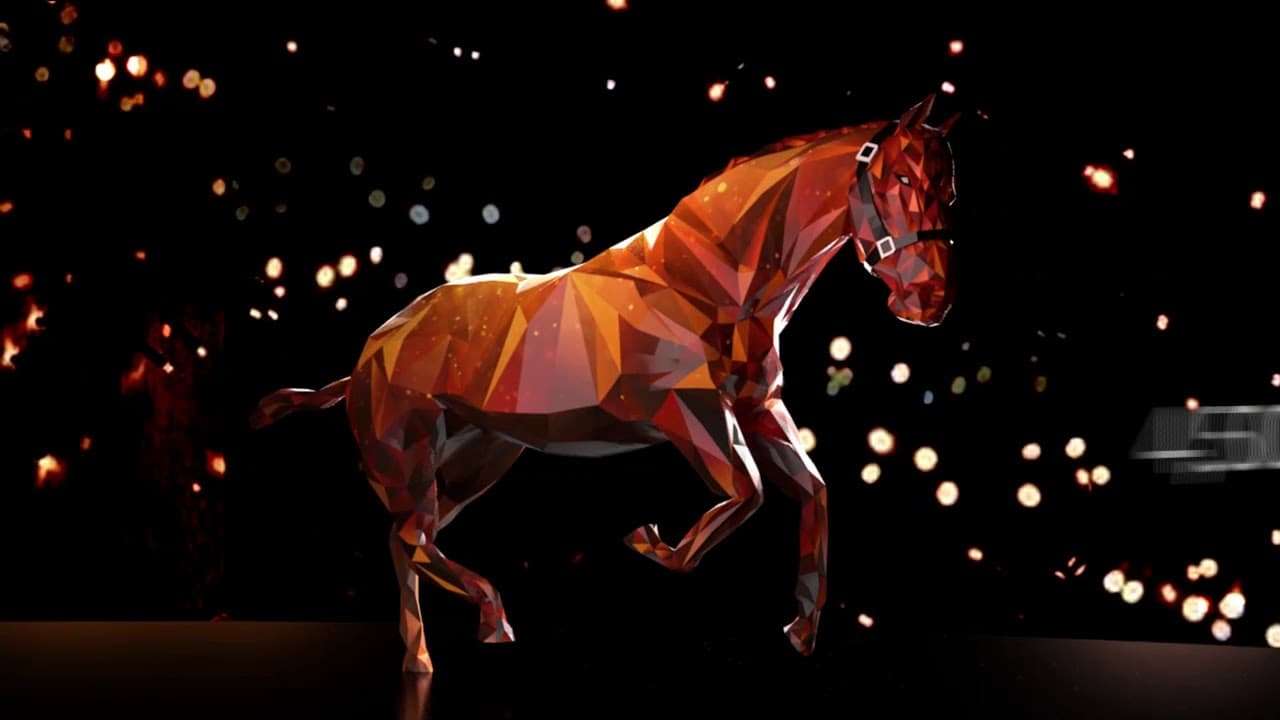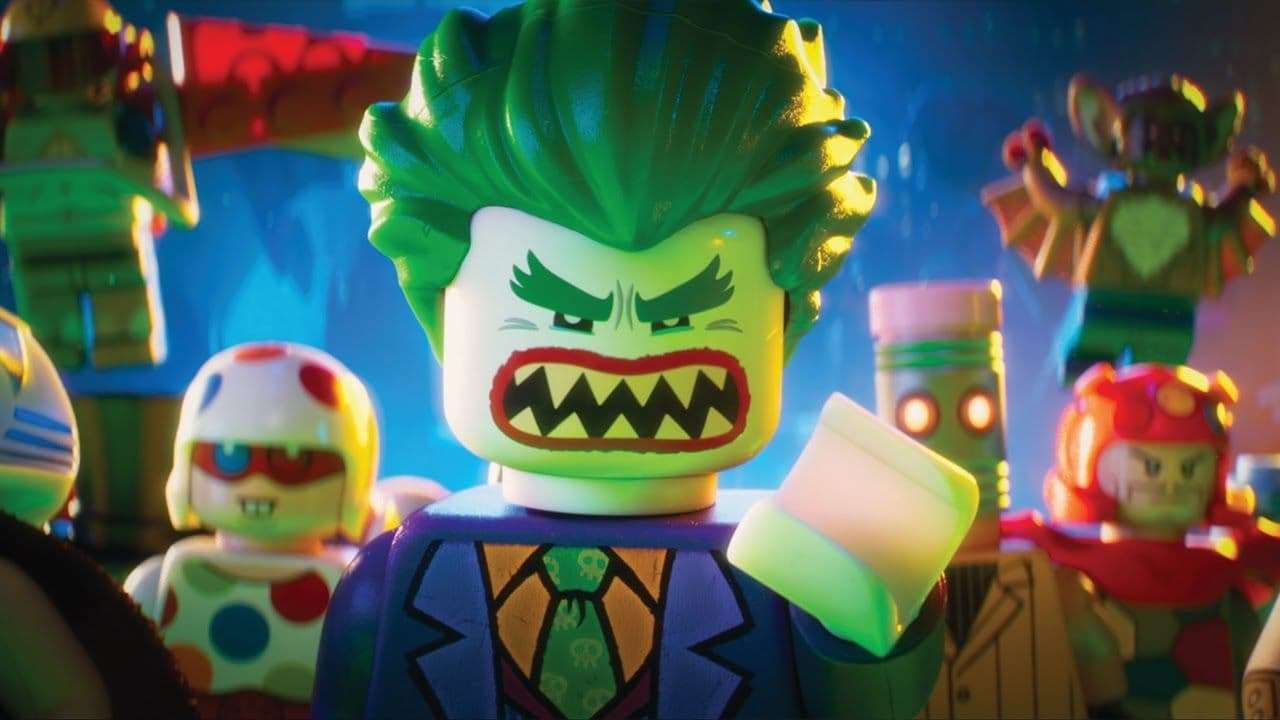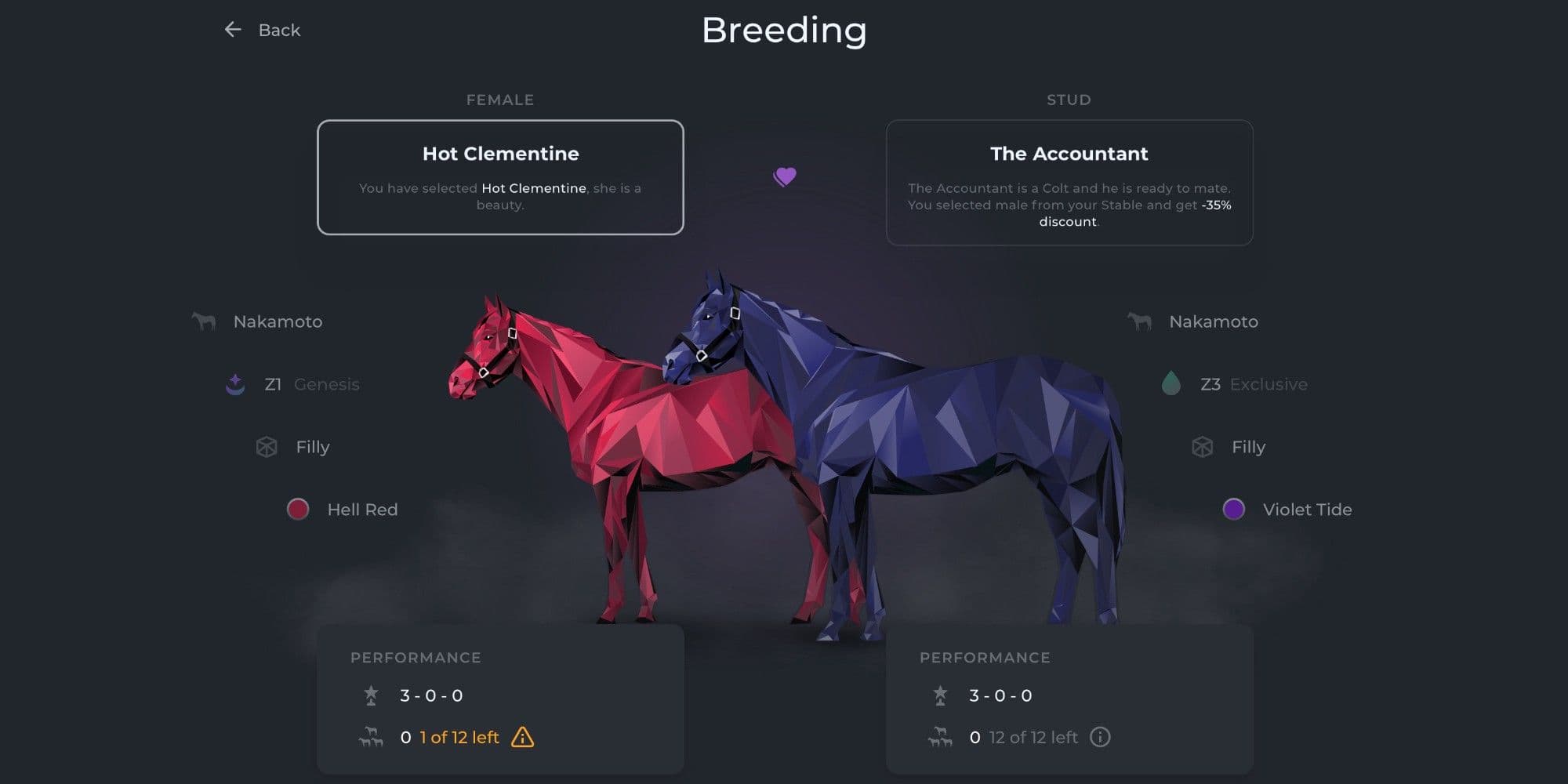
Driven by crafting unique visual experiences for Film, TV, Games and emerging technologies, Chris Ebeling is a world-class Animator, Creative Director, Writer and Digital Artist having worked on Hollywood blockbusters such as The Lego Movies, The Great Gatsby, Gods of Egypt and Happy Feet 2. Supplementing his extensive film and VFX background, Chris has successfully creative directed projects in the real-time space, with experience across games as well as virtual and augmented reality projects.
The Journey
What's your current role and what does it involve?
Creative Director and Co-founder of Virtually Human Studios. Here i oversea all our projects Creatively. Anything from early designs to final look and feel. UX design, animation direction, Art style and more. I oversee all our artists, and work closely with clients and investors to make sure everything is being delivered on time and above standards. As we are a young studio just starting out, I also get on the box (on the tools) and do and help with the project where and when needed.
Where do you work, and what type of projects are they involved with?
At the moment we are a remote studio, based out of Sydney and Melbourne. We operate remotely which gives us great flexibility in who we can bring onboard to help. Currently we are primarily focussed on our own ip called ZED, which is a digital horseracing game and ecosystem built on the blockchain. We also have a few other projects brewing on the side, which we cant speak of just yet.
When did you first realise you wanted to work in this industry?
I was a late bloomer so to speak. Loving video games, drawing and animation, I never thought that I could work in this industry. Then one day I was doing sketches of my wife's friends and they said "you should do animation"... I laughed it off, but the following week looked up schools... and there was a short course at Enmore Design Center in Sydney, doing weekend Maya classes. I thought, why not try this out... and i was hooked! I then proceeded to study this full time for a year.
How did you get your first big break?
It was tough getting in, I got knocked back a few times coming out of studies, however fell over a Animal Logic Trainee ship programme. This was one of the first they ever run, and it was teaching Roto scoping and junior compositing using SHAKE (lest we forget) - After 4 weeks here, I was offered a job on a feature film called "KNOWING" with Nicholas Cage, as a rotoscope artist. I was beyond excited. Its worth mentioning that SHAKE was no longer and that we jumped in the deep end using NUKE on this project.
Describe the journey you took into your current role?
Are you sitting down? So once "Knowing" was done, I helped out on "AUSTRALIA" and then went into the TVC department (which is no longer) assisting FLAME Artists on TV commercials. My supervisor at the time, Vaughn Arnup, always knew my heart was set on 3D and animation specifically, so when an opportunity came up, and he saw that they were looking for juniors in 3D he had a chat with me about this move. It's worth mentioning the reason he knew, was with any spare moment I had during the working day, i would animate. I would bring in animations from home and show my peers to get feedback. It was obvious I was hungry for a chance here. I also met some amazing animators who I consider mentors to this day. They helped provide valuable feedback, and in turn, also saw how keen I was... It was a win win really.
Anyways, longer story shorter, I was offered a 3D position in assembly/layout. Here we would assemble assets and QC control them for the animated feature film "Guardians of Ga'Hoole". Again, with any spare moment, i would grab the rigs and animate them, get feedback from mentors and peers and keep hustling. Once they were looking for junior animators, they didn't have to look far, as they knew there was an eager beaver within their midst who understood the process, culture and pipeline. I was brought onboard as a junior animator, and from here animated all around Sydney studios and remotely for studios around the globe. I always love the creative of any project. And slowly moved into a position as creative director. Starting at a small sydney studio, pic4, where I also helped co-write and animation direct the award winning shortfilm "Cargo".
I was then offered an opportunity to help establish the UTS Animal Logic Academy, a unique joint venture between UTS and Animal Logic, where we aimed to create an industry led, simulated learning environment. In short, a studio full of young junior artist wanting to take the leap into the industry. In fact our early success showed us what we had built was working and that we were bridging the gap from student to proffesional artist.
After 3 years here, and a handful of awards (including the Rookie Awards) I was contacted by old friends that I had worked with in the past about joining in on this new adventure. A startup studio we call VHS (Virtually Human Studios), where I was brought on as Creative Director to help create this parallel universe we call ZED. So with over a decade of experience in Feature Film, TV, Games as well as AR/VR/MR experiences, I am currently residing as the Creative Director for VHS... That's the short version. :)

Day in the life
Describe a typical day for you and your team?
Kids, get em up and ready for school... Coffee wherever I can fit it in... drive kids to school.... Gym.... Home around 9:30... and my work day starts... Because we operate remotely, there is no set working hours per say... We just need to get shit done. As we have artists and developers all across the globe, i need to be flexible in my availability.
This means that i might work from 8pm to midnight, so i can communicate with an artist in Russia. Personally I love this, as i love the project we are building. I wake up jumping onto slack and emails to see if there are any updates, assets, designs sent through from o/s artists and developers. It also gives me great flexibility with the family life... I can be there for my kids, but then have to hustle extra in other parts of the day... But again, this works for me, as sometimes you are in your creative flow at 10pm... and then can sit down and knock some cool ideas out.
Throughout the day I communicate with my co-founders, and make sure we are all on the same page with deliverables. We use "Monday" to track our own and each others progress. The key is to be transparent and be a strong communicator.
What third-party and proprietary tools do you use on a daily basis?
Slack, Gmail, Google Drive, Dropbox, inDesign, Adobe Suite (mainly AE, PS), Maya: These are the main tools I am using at the moment.
Which departments and key people do you work closely with?
Co-founders, management, Artists, Developers, Marketing, clients and investors.
Are there any industry trends that are changing the nature of your role?
AR/VR/MR , advanced a.i, machine learning / neural networks... its all very exciting. I am fortunate enough to have been playing with all this for a few years now, and its definitely technology we are implementing and looking to implement in our projects. A new exciting trend is threejs. I have never worked with before, and what we have been able to do so far is amazing! I believe we are building something very special in this space, and cant wait to share it with the world! (we have shared some early test through our socials).
One thing you’d never change about your job?
Wow... one thing? I don't know... I love it all. So wouldn't change anything right now.
But one thing you wouldn’t mind seeing changed is?
More studios incorporating more remote workers and contractors. It's a game changer... While it's nice to have all the creatives in a room and be able to get stuff done fast and together, having the ability to work remotely can give you happier employees and they can work anytime of the day, which means they probably work more than a standard day anyways. The only trick is finding the right ones, that are reliable, communicate well, and have iniative. They are out there, and we have a handful of them already, and they are great.

Career Advice
Is formal education essential for someone aspiring to do your job?
No.. as someone with no formal education i can confidently say no. HOwever having a masters or a bachelor isn't a bad thing.... It can open up doors in other countries as they can be essential to Visa applications. And if you are itching to pass on your experience and teachings, having these qualifications can help you land a teaching role. Are they necessary... NO! Experience is necessary... Good work ethic, commitment and social skills are necessary.... but not a piece of paper.
What skills do you look for when hiring an artist?
Depends on the role we are hiring for... Experience, do they have it? If not, I want to see strong potential in their portfolio... good attention to detail... understanding of chore principles and a good foundation in their specified craft. Soft skills! How do you look for these... Have they worked in a Cafe? McDonalds? Reference checks... Are they strong communicators. Are they reliable. Do they take initiative. These are all areas of importance to me.
Describe a project brief that you’d recommend artists create for their portfolio?
Really depends on what they craft they are demonstrating? If modelling, I always say environment... do a diorama... an alleyway, with containers, rubbish, air conditioner, fire escapes... grimey bricks, dirty asphalt... if you want put a motorbike in there.. if you really want to put a character in there too...
However QUALITY over QUANTITY... always! Do one thing right! and do it well! So start with an air conditioning unit... make it the best it can be... Have photo ref, that you can try match 1 to 1.... Then build up your diorama from here... Always show breakdowns... wireframe topology, texture layers and turntables.... So if you have a big set, diorama piece... break it all down... one by one... we want to see how you put it all together! We want to see your process.
Don't do dragons and elves... if you want to do character... model Bruce Willis or Brad Pitt from a movie... and make it look exact! Digital doubles are needed more than dragons and elves... plus... fantasy characters are flawed, or can be... as they don't need any direct reference for comparison.... Bruce and Brad on the other hand... do! I would rather see an awesome dirty boot modelled exactly like a photo.. then a dragon or an elf... just saying :)
For animation... Strong foundation and understanding of the animation principles.... If junior, I want to see the bouncing ball.. and want to see it bounce like a real ball... I want to see body mechanics, parkour, weight shift and weight lift... I want to see all this before lip sync and acting. When you are ready to do acting and lip sync, start with a monologue, or one character talking and the other talking off screen... Pick something short... again.. QUALITY over QUANTITY... 5-6 secs... (Same for the parkour and other animations you are doing). Act it out, film yourself acting it out... don't even get into maya, before you understand the full context of you performance and who the character is... I like using what I call the 5 W's... Who, what, where, when and why? If you answer this in almost any creative task, you will be better grounded and prepared to execute... Spend a day acting and filming, get your friends to help. If you aren't a good actor, that's ok, you might know someone who is. BUt... give it a shot!
Animators have to get up and move around and "BE" their character. You have to feel it out to fully understand how you will execute your performance... Reference is King! Don't start without it! I have a million more tips on this, can share in a seperate blog perhaps? :P
What mistakes do you see artists making when applying for jobs?
Not being critical enough on their works. When presenting a showreel, you are only as strong as your weakest piece. If it's not good enough and pulls the standard down... take it out! This is key! Don't be pushy! Be hungry, but humble!
Understand that we are super busy and the industry moves at a rapid pace... Get used to not hearing back on an application, it happens to us all. Don't be the applicant that demands feedback and writes back every 2 days... You will be noticed, and not in a good way.
If you could give one piece of advice to artists starting out, what would it be?
It's a process, you have to trust it, adapt to it, and stay committed and your time will come. Anything worth doing is hard work. It's a hustle and you have to grind it out! But once you get that first gig, you work your tail end off and prove why you belong... from here you will generate healthy habits that will have you jumping from one job to the next... And always, always be humble... there are three great rules that were passed on to me... Turn up on time, Deliver your work and dont be a Dick!
This goes for any job in any industry. And, always be learning.... the industry is constantly changing, be ready for it... play with real time engines, get your head around ar/vr/mr. If you are a programmer get into machine learning... If there is a new software out, play with it... as you may learn one thing (shake), but when you are employed they are using another (nuke). This will also give you the confidence to take on any new tool without hesitation... and will make you more adaptable to any studio pipeline.
If you could go back in time to when you first started out, what advice would you give yourself?
Start earlier, as mentioned I started in my mid 20's, if only I had known 3D animation was a thing when i was 17-18, i would have had those years head start...
